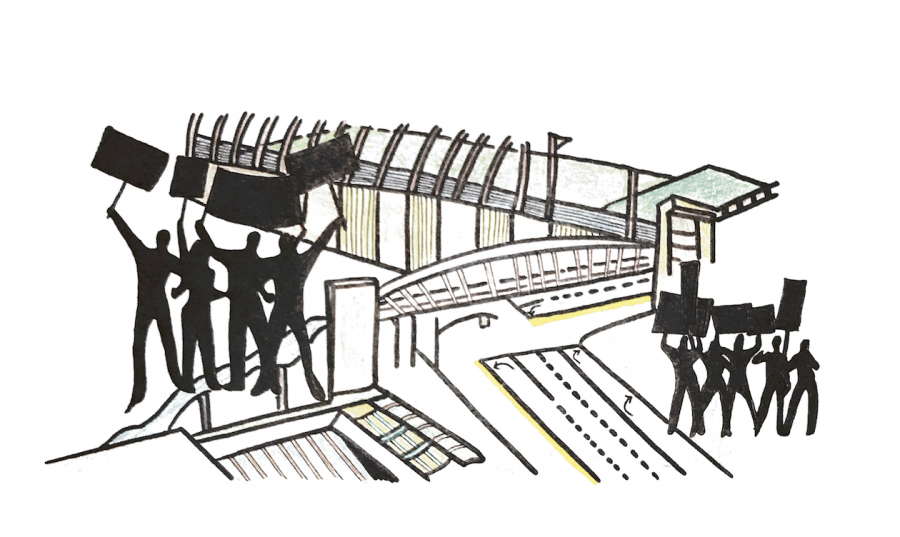I honestly don’t remember a time when I haven’t seen the white signs decorating the houses outside our upper school, slamming our prospective parking structure in the capitalized, red font to “Save Coldwater Canyon!” and “Say No! To Harvard-Westlake’s Private Bridge.” The signs are an everyday, ubiquitous sighting; I don’t even register the concept of them when I run around the “Are you ready to spend an extra 45 minutes in traffic?” on the cross-country teams’ daily run down to the river. And when we do talk about them, it’s usually at most a laughing matter during the walks down to Starbucks.
Our neighbors’ criticism of our proposed parking structure has always seemed more of a piece of light conversation. I had always personally viewed less as a conflict, and more as a neighborly complaint about an annoyance and a situation over which they had little control. I have seen the “Save Coldwater Canyon” Facebook page (two of my friends liked the page as a joke), but I never actually bothered to scroll through and read the complaints voiced on it. However, when I read about the hundreds of neighbors who showed up at the public hearing in Van Nuys City Hall a couple weeks ago, when I saw the media coverage this hearing received, and when I heard that the petition against the structure had been signed more than 2000 times, I was astounded. This conflict was much more than just a trivial discourse, I soon realized.
I scrolled down the Facebook page and read comments in which our neighbors called us “arrogant,” described us as having “no regard for the community or environment” and cited reasons for our being bad neighbors, which included events relating to the old Hollywood Country Club more than 40 years ago and new theories of an “underhanded” or “illegal” attempt to attract visitors during the 2028 Los Angeles Olympics.
Now, I know some of these positions are a bit dramatic. Nevertheless, we accept the idea that our neighbors dislike us as a fact, and it might serve us well to examine what it means that we have come to accept this. Most of the student body does not know the details of our parking structure and what it would come to mean, and both sides keep fortifying their walls, signing petitions and programs and citing different studies. Both groups cast the other as the “wrong” side of the argument. But is there, and can there be an absolute “right” side of this debate?
An awareness that reasonable points are being made by both sides is the first step to dealing with this situation. Trust must be developed between us and our neighbors, and though we do need parking spaces and practice areas, we cannot remain, as we have been for the past four years, the “bad guy” in the neighborhood. We must seek common ground and work together, beyond the public hearings where both sides leave unsatisfied and frustrated.
There are problems on both sides — lack of parking, traffic, pollution — that affect the whole community, and only when we work together to mend the walls between us and our neighbors can we build a parking structure that will undoubtedly serve the people around us. Working together is more beneficial than working against each other. Hopefully one day in the near future, it’ll be a smoother run down Coldwater Canyon.































